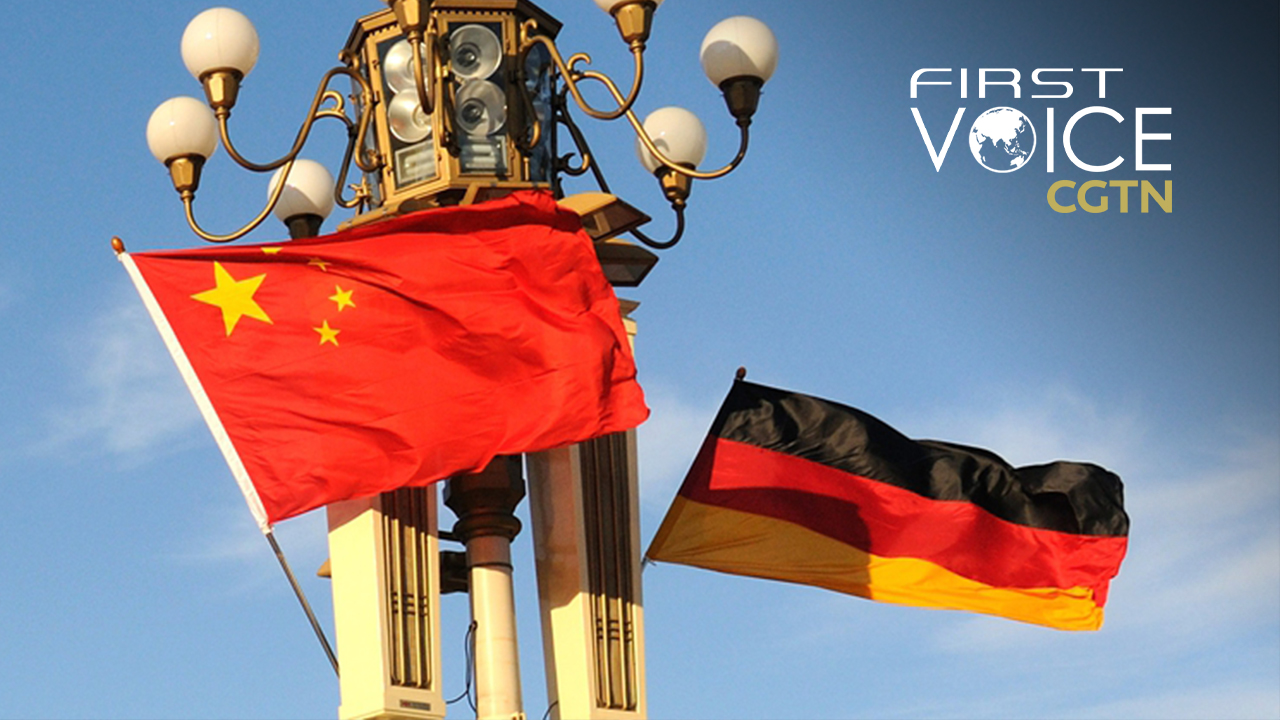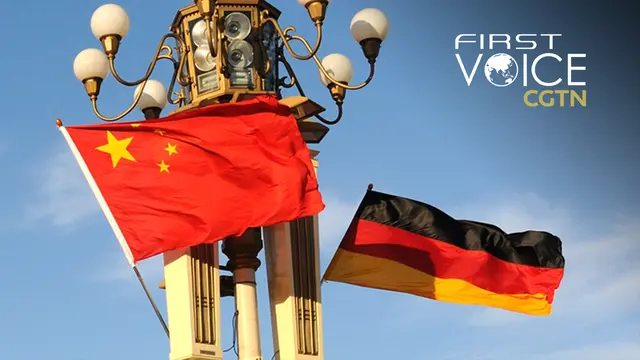
Editor's note: CGTN's First Voice provides instant commentary on breaking stories. The daily column clarifies emerging issues and better defines the news agenda, offering a Chinese perspective on the latest global events.
Peter Beyer,transatlantic coordinator for German Chancellor Angela Merkel's government, said in an interviewon Monday that both Germany and the U.S. must strive towards strengthening transatlantic ties through abolishing tariffs and establishing joint carbon emission trading systems to protect the climate.
While undoubtedly a welcoming sign that there are plans to move toward multilateralism and doing away with Trump-era policies, Beyer also mentioned the need to initiate World Trade Organization (WTO) reforms to increase pressure on China for what he considered Beijing's lack of compliance with its trading rules.
By referring to joint threat perceptions instead of collaboration prospects, the transatlantic coordinator sidelined both China's complex relationship with the WTO as well as the significance of the China-Germany relationship.
If the aim is to take a dig at Beijing over its trading practices, then the coordinator's strategy does not account for the robustness of the trade relationship between the two countries. China is easily Germany's largest trading partner with trade volume between both countries hitting $233 billion in the year 2019 alone. China also replaced the United States as Germany's largest export market, with total exports from April to June 2020 totaling approximately $27.25 billion.
As former U.S. President Donald Trump unleashed tirades against China, Berlin demonstrated remarkable maturity with its China policy given that importance was placed on maintaining strong trading ties at the expense of trade wars which would have only served to widen trust deficits between various countries.
Interestingly, it was Trump's protectionist and isolationist global trade policies that prompted Germany to look toward China. Based on goodwill and trading numbers alone, the bilateral relationship has been strong where Germany never viewed Beijing as a threat.

A China-Europe freight train bound for Duisburg, Germany pulls out of the Wuhan terminal of China Railway Intermodal in Wuhan, central China's Hubei Province, March 28, 2020. /Xinhua
However, numbers alone do not explain the significance of Germany's trade ties with China or the latter's role as a responsible power in the WTO, which has been targeted by Peter Beyer. The concessions made by China to the organization dates back to 1995 when Beijing acceded to the process outlined in Article XII of the Marrakesh Agreement, which required members to make more extensive commitments than original members in the previous General Agreement on Tariffs and Trade (GATT).
Additionally, there is a need to examine China's activities under the dispute settlement system of the WTO, which cannot be considered as attempts to undermine the body's principles and commitments. From 2002 to 2019, China was involved in 65 disputes and 44 times as a respondent. In comparison, the United States and the EU were involved in 468 disputes collectively in the same time period.
China's complaints have often been in response to draconian measures adopted by the United States as was the case in 2002 when a series of complaints were registered against U.S. steel tariffs resulting in a WTO ruling that the Bush-era tariffs were illegal.
While there has been significant talk about withdrawing American tariffs imposed by Trump on European imports of aluminum steel, scant attention has been paid on dealing with draconian trade policies, prompting China to challenge several American proposals at the WTO.
Beyer's views contrast with a more cautious approach adopted by France under Emmanuel Macron, with an understanding in Paris that European reliance on rival powers would only damage the union. A policy that explicitly supports American trading ties while liaising on subjects like climate change, trade and tax policies with a hawkish stance toward the Chinese economy has not been Germany's traditional policy toward Beijing nor it is part of the Merkel doctrine.
With U.S. President Joe Biden set to hold his first event with G7 leaders in a virtual meeting on Friday, which will also discuss China relations, it would be worthwhile for Beyer to pay attention to the comments of the chief of German industrial giant Siemens, Joe Kaeser, who said it is important to be thoughtful and respectful toward Beijing.
Scriptwriter: Hamzah Rifaat Hussain
(If you want to contribute and have specific expertise, please contact us at [email protected].)
 简体中文
简体中文

